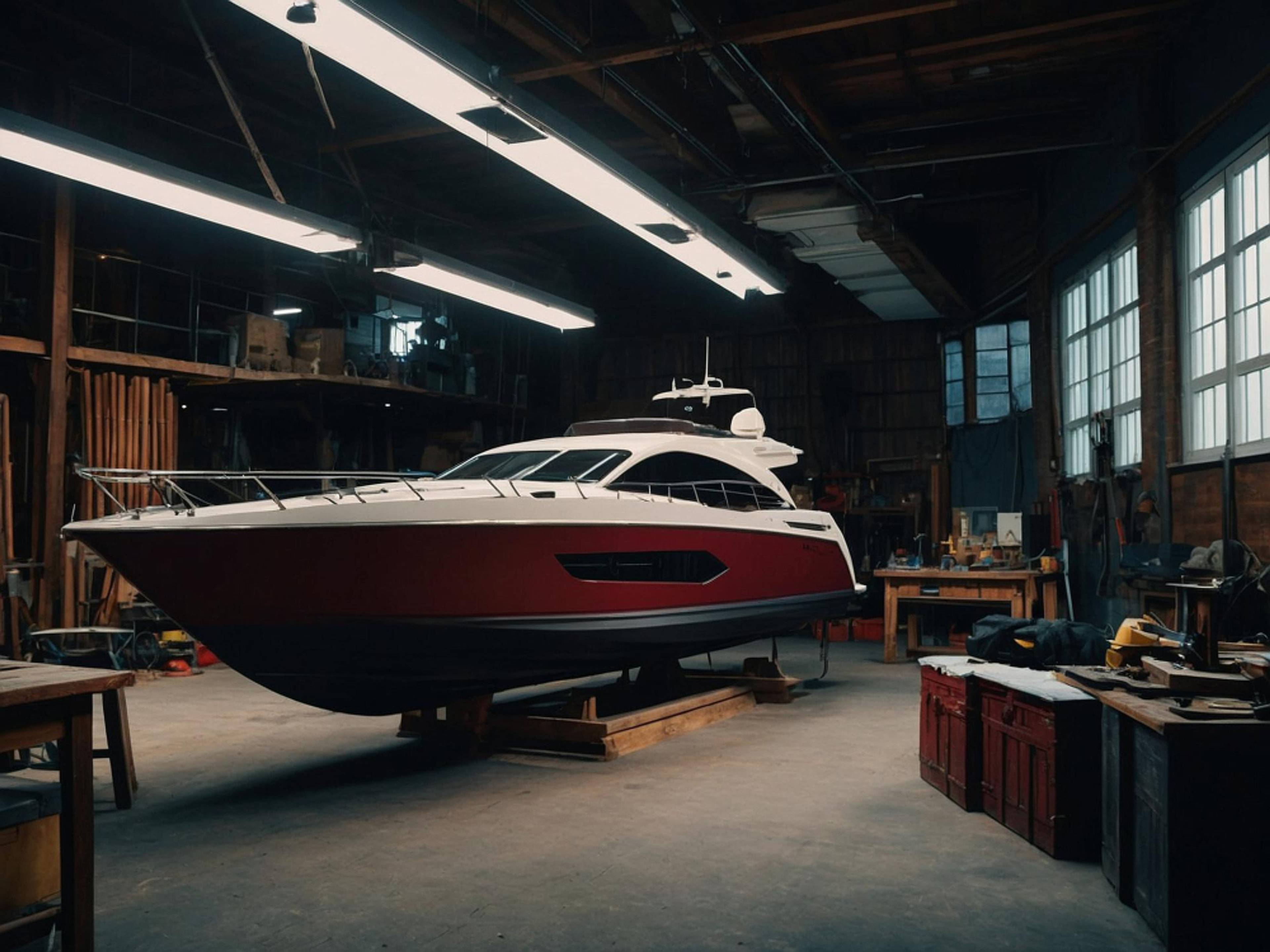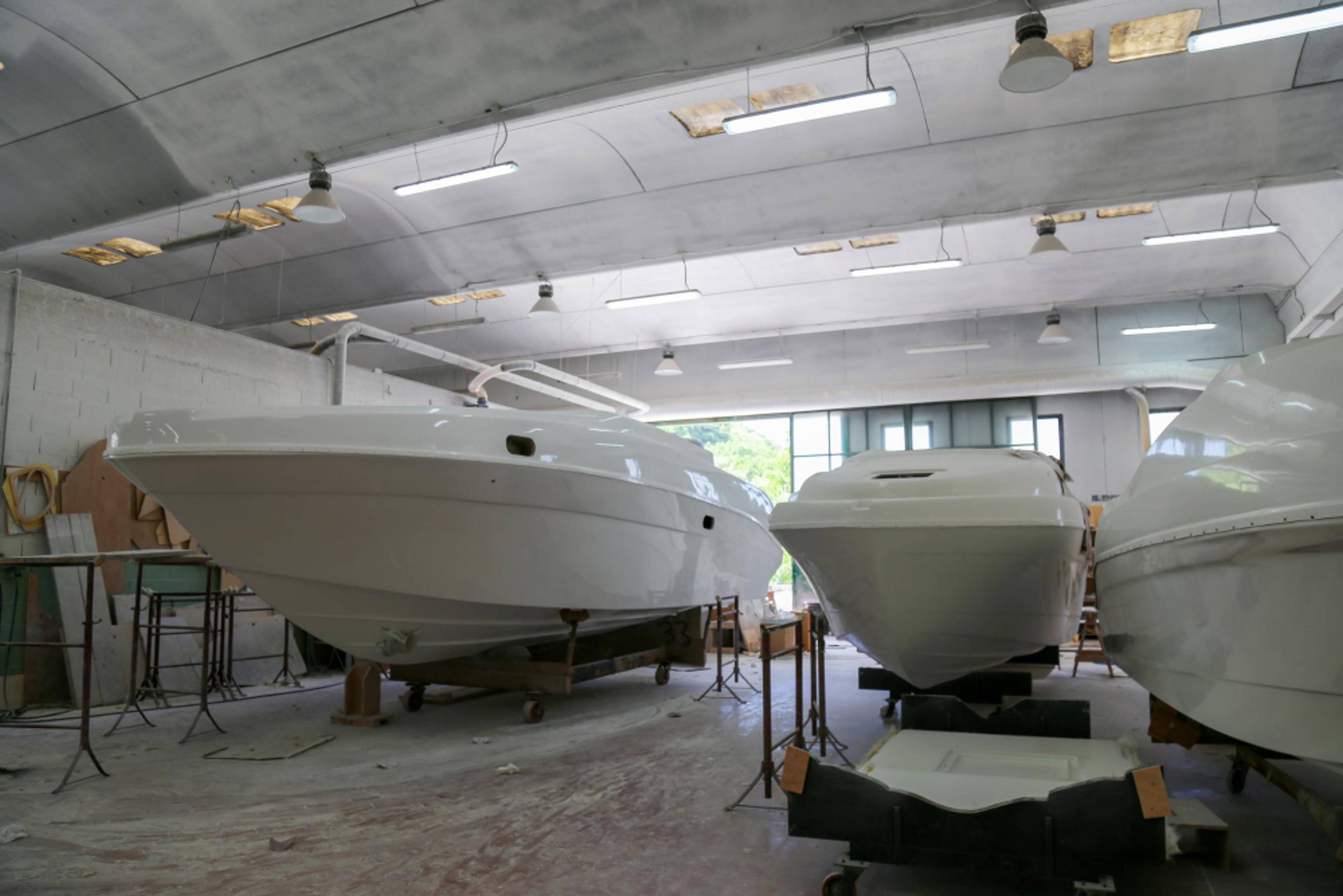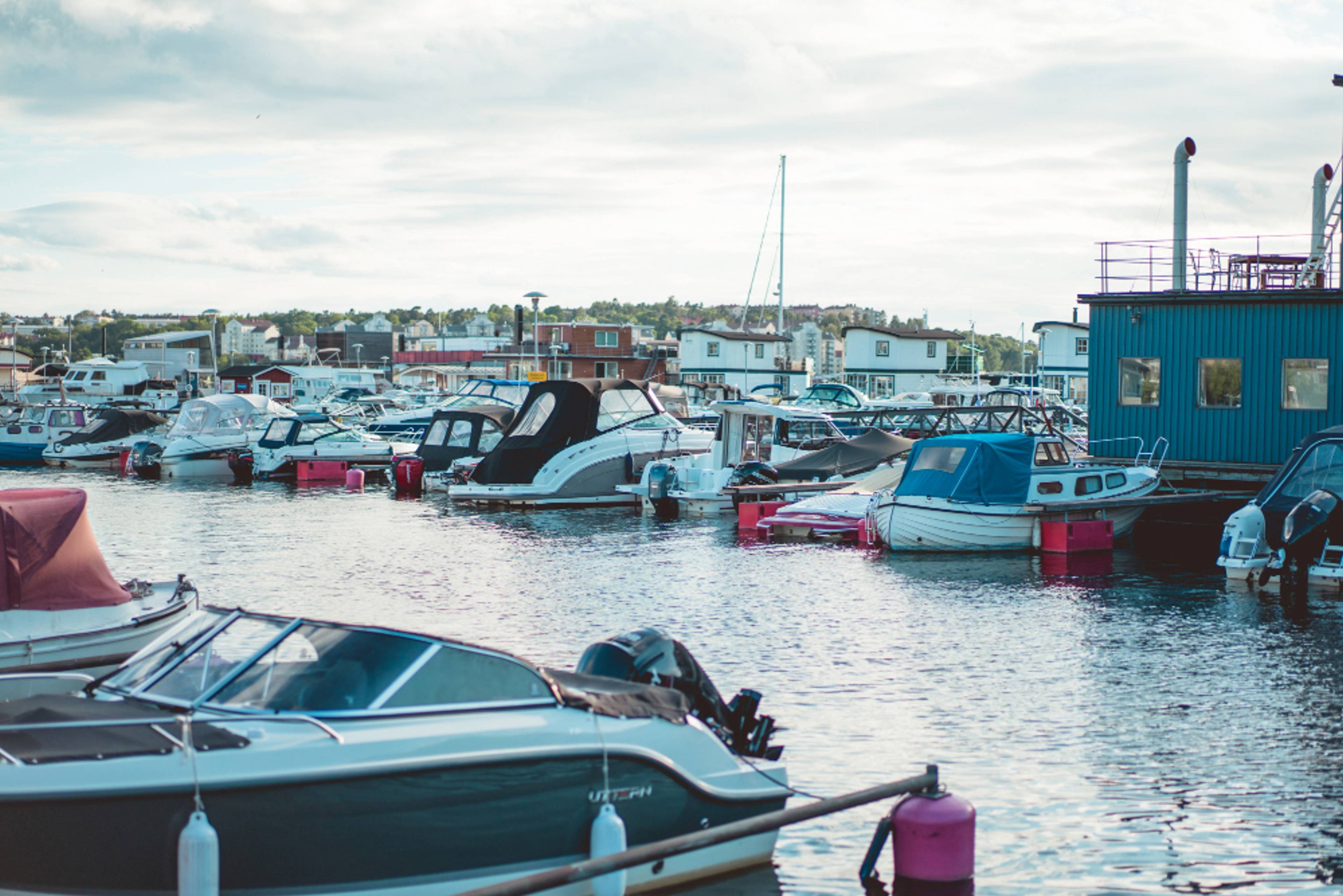The short answer is yes, but it’s important to understand the requirements and considerations involved to ensure your boat is stored safely and securely.
Storage units offer a budget-friendly alternative to marina storage and provide increased security compared to outdoor boat storage. Whether you’re looking for long-term storage solutions for harsh winters or simply need a place to keep your boat dry and safe during the off-season, indoor boat storage units can be an excellent option.

In this article, we'll guide you through the essential factors to consider when choosing a storage unit for your boat. From understanding the size requirements to preparing your boat for storage, we’ll provide expert tips and practical advice to help you make the right decision for your needs.
Let's get started!
Can a storage unit fit a boat?
Yes, you can store a boat in a storage unit. While most boat owners may leave their boat stored at a marina, this can become quite expensive. Using a storage unit for boat storage could be a great way to save money, and keep your boat in one piece.
However, there are a lot of variables at play when it comes to storing a boat. Not every storage business will have boat storage facilities, and the ones that do may only go up to a certain size.

Generally, smaller boats, such as jet skis or dinghies, are better suited for indoor storage units. Larger boats may require more space, making outdoor units or a specialised self-storage facility a better option.
While storage units can offer a convenient and secure option for storing your boat, it’s important to confirm with the storage facility that they allow boat storage, as policies can vary.
Some facilities may have restrictions on storing certain types of boats or may require additional measures, such as draining fluids or covering the boat before storage.
Size considerations
After measuring your boat, you will have to find the right storage space that can fit it:
- Boats smaller than 20ft in length – For boats of this size, a 10x20' storage unit will suffice as boat storage.
- Larger boats – Some boats may need storage spaces that are at least 20x40' depending on their size.
Measure the length, width, and height of your boat, including the boat trailer, to determine the size of the storage unit you’ll need. For smaller boats, a standard unit may suffice, but larger boats may require more space or even multiple units.
When storing any vehicle, get all your measurements first, and then research local storage facilities. Choose a unit that is bigger than your measurements so that there will be extra space for easy access and to manoeuvre around the boat.

Outdoor storage facilities
If your boat is too large for an indoor storage unit, outdoor storage might be the next best option. Some storage facilities offer outdoor units specifically designed for boats, providing a secure and convenient place to store your boat when it's not in use.
Outdoor storage will mean size is less of a concern if your boat is too large. You won't have features like climate control like in an indoor storage unit, but you can still protect your boat with a tarp, keeping the outside elements away.
Outside storage may also make it easier to access your boat and take it out of storage.
Access and manoeuvrability
If you'll be moving your boat in and out regularly, you'll want boat storage with quick and easy direct access. Manoeuvrability is vital for getting your boat in and out of your unit. Look for facilities with wide driveways and spacious loading areas to make manoeuvring your boat as hassle-free as possible.
Storage facility policies
Before storing your boat, check the specific policies of the storage facility. Some facilities may have requirements such as draining the fuel, disconnecting the battery, or covering the boat to prevent damage. These policies are in place to protect both your boat and the storage facility, so it’s important to comply with them.
You should also consider a facility with good security. Gated access would be a plus in keeping your boat safe while it's in storage.
Preparing your boat for storage
Whether it's indoor or outdoor storage, your boat needs to be sufficiently prepared.
Cleaning and maintenance
Before storing your boat, it’s essential to clean it thoroughly. Remove any personal belongings and gear, and ensure the hull, deck, and interior are free from dirt, salt, and debris.

Regular maintenance, such as checking the engine, battery, and fluids, should also be performed before storage to prevent issues when you’re ready to take the boat out again.
Winterising your boat
If you’re storing your boat during the winter, winterising your boat is crucial. This process involves draining any water from the boat, adding antifreeze to the engine, and protecting the boat’s exterior with a proper cover. Winterising helps protect your boat from freezing temperatures and harsh weather, ensuring it remains in good condition.
Proper covering and protection
Whether you're storing your boat indoors in a storage unit or garage, or outdoors at a marina, a boat cover is essential. A boat cover will protect your boat from dust, moisture, and UV rays, helping to prevent damage and maintain the boat’s appearance.
For outdoor storage, consider additional protective measures, such as tarps or shrink-wrapping, to keep your boat completely dry and shielded from the elements. This protection is vital if you're leaving your boat for an extended period of time
Where else could you store your boat?
Depending on the size of your boat, a self-storage facility won't be able to fit it in one of its units. In this case, there are plenty of alternatives for boat storage.
Marina storage
Marina storage is a popular option, especially for those who use their boats frequently. Storing your boat at a marina offers the advantage of quick access to the water, making it easier to take your boat out whenever you like. Rent may be higher at a marina, so only choose this option if you plan on using your boat often.

Dry stacks
Dry stack storage is a specialised option where boats are stored in racks within a covered building. This option offers excellent protection from the elements and is ideal for smaller boats. Dry stack storage can be a cost-effective solution, but availability is often limited, so it’s worth checking with local facilities well in advance.
Conclusion
Storing your boat in a storage unit is a practical and cost-effective solution, especially if you’re it's in the off-season or it's not in use. However, finding the right unit can be difficult, especially given how big some boats can be.
By choosing the right storage facility and preparing your boat properly, you can ensure it remains in top condition, ready for your next adventure on the water.
HOLD Self-Storage has large units to fit your boat securely.
If you’re on the hunt for a reliable and secure self-storage option, HOLD Self-Storage is here to help. Our Kings Cross facility offers everything you need to store your belongings safely and conveniently, from spacious units to advanced security features. Whether you need short-term storage or a long-term solution, we’ve got you covered.

Contact us today for a free quote or to learn more about our boat storage options.
Frequently asked questions
Where is the best place to store a boat?
Boatyards at a marina are your best option if you plan on using your boat often. Some storage units are large enough to fit a boat if you don't plan on using it and don't want to keep your boat in a marina.
Is it safe to store a boat in a garage?
It depends on the size of your boat. If it's a small personal boat, then it'll likely be able to fit inside a standard garage.
What size storage do I need for a boat?
Smaller boats can typically fit in a 10x15 or 10x20' unit. Larger boats may need much more space, however. Keep in mind the height of your boat when connected to its trailer, as well.
What notice do I have to give to my storage unit?
We require one month's notice; unused rent and deposit are refunded upon checkout.
How does storage work at HOLD?
Self-storage works by renting a storage unit or space for a specified period. You can store your belongings in the unit and access them whenever you need to. It's like having your own personal storage space away from home.


